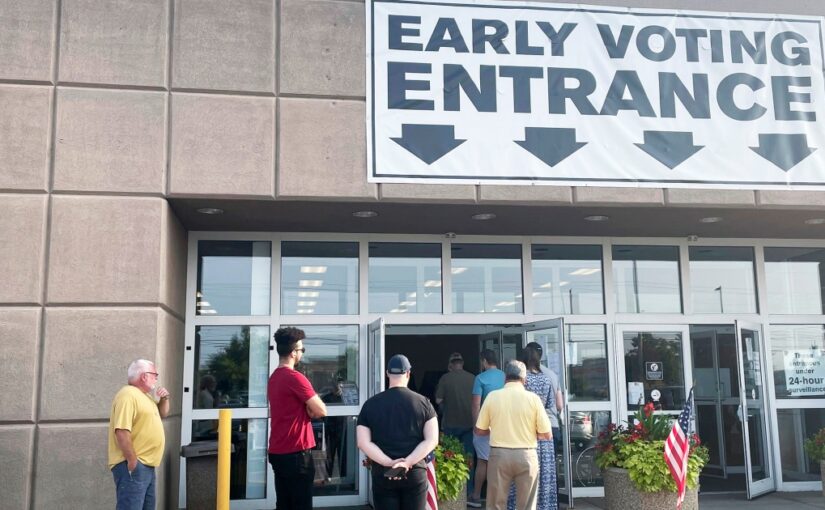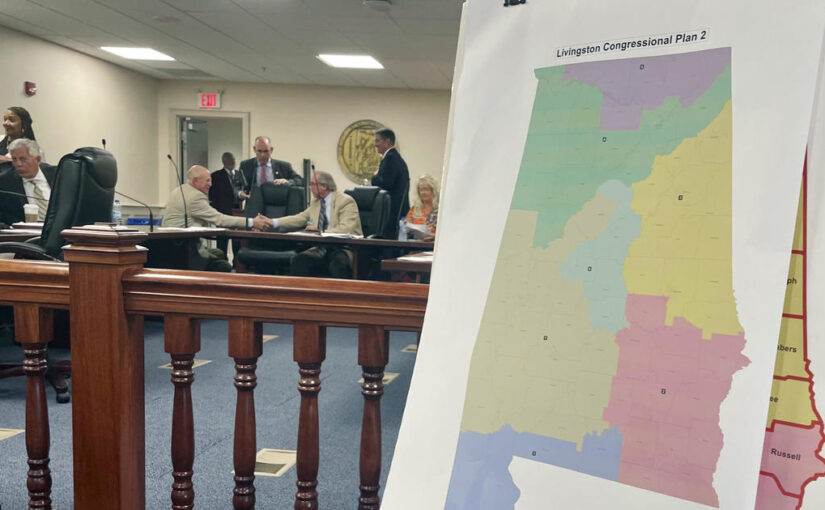LONDON — A group of artists set to compete in this year’s Eurovision Song Contest said Friday they “do not feel comfortable being silent” in light of the ongoing Israeli military offensive in the Gaza Strip, but stopped short of heeding growing calls for a boycott of the music competition over Israel’s participation.
The joint statement — from the entrants who will represent Denmark, Finland, Ireland, Lithuania, Norway, Portugal, San Marino, Switzerland and the United Kingdom — comes a little more than a month before this year’s edition of the pop extravaganza in May. The competition is being held in the Swedish city of Malmo, which said earlier this month that it was prepared for possible protests.
The presence of Israel, which is competing with the song “Hurricane” by Eden Golan, has loomed over the buildup to the competition and fueled calls for the country to be kicked out of the contest. However, the European Broadcasting Union, which runs the event, has allowed Israel to participate after changing the title and lyrics of its entry, which were originally deemed to violate the contest’s rules about remaining nonpolitical.
“We want to begin by acknowledging the privilege of taking part in Eurovision. In light of the current situation in the Occupied Palestinian Territories, and particularly in Gaza, and in Israel, we do not feel comfortable being silent,” the artists’ joint statement said. “It is important to us to stand in solidarity with the oppressed and communicate our heartfelt wish for peace, an immediate and lasting ceasefire, and the safe return of all hostages. We stand united against all forms of hate, including antisemitism and islamophobia.”

The statement added: “We firmly believe in the unifying power of music, enabling people to transcend differences and foster meaningful conversations and connections. We feel that it is our duty to create and uphold this space, with a strong hope that it will inspire greater compassion and empathy.”
The statement came a day after an open letter by a group of LGBTQ+ artists, musicians, writers and activists called on British entrant Olly Alexander to boycott the competition.
Alexander has had international success as part of the band Years & Years, and is among the most high-profile acts at this year’s competition. BBC, the United Kingdom’s public broadcaster, which chooses the British entry, distanced itself from the letter.
“These are the views of Olly Alexander. He is not speaking for the BBC,” it said in a statement.
The group of more than 450 artists and activists under the banner Queers for Palestine had posted the open letter Thursday saying “We ask you to heed the Palestinian call to withdraw from Eurovision.” The group accused the EBU of “providing cultural cover and endorsement for the catastrophic violence that Israel has unleashed on Palestinians.”
Alexander also posted his own response Friday to the Queers for Palestine letter. “As a participant I’ve taken a lot of time to deliberate over what to do and the options available to me. It is my current belief that removing myself from the contest wouldn’t bring us any closer to our shared goal,” he said.
Irish entry Bambie Thug, who uses they/them pronouns, added a further statement posted on their Instagram account, “As an Irish person with a shared history of occupation and a queer individual, I cannot and will not remain silent.”
Saying they were aware of calls to withdraw from the contest, Bambie Thug said that “stepping back now would mean one less pro-Palestinian voice at the contest. My heart and solidarity has and always will lie with the oppressed, and I remain committed to supporting and using my platform to raise awareness and advocate for change.”

The EBU said in a statement: “We understand that these artists wish to make their voices heard in a call for peace. All of us working on this year’s Eurovision Song Contest are mindful of the strong feelings and opinions surrounding the current conflict in the Middle East. We have all been impacted by the images, stories and the unquestionable pain suffered by those caught up in this devastating war.”
The Israeli broadcaster KAN declined to comment and the Israeli Culture and Sports Ministry did not immediately respond to a request for comment from NBC News on Friday.
When announcing the revised Israeli entry earlier this month, a KAN spokesperson cited Israeli President Isaac Herzog’s desire to have the nation compete in Eurovision. “The president emphasized that at this time in particular, when those who hate us seek to push aside and boycott the state of Israel from every stage, Israel must sound its voice with pride and its head high and raise its flag in every world forum, especially this year.”




